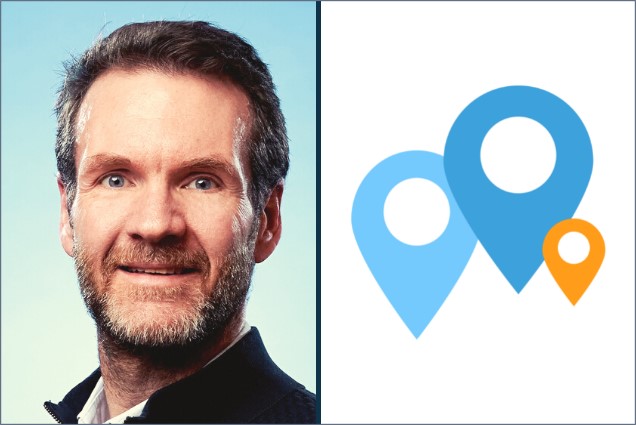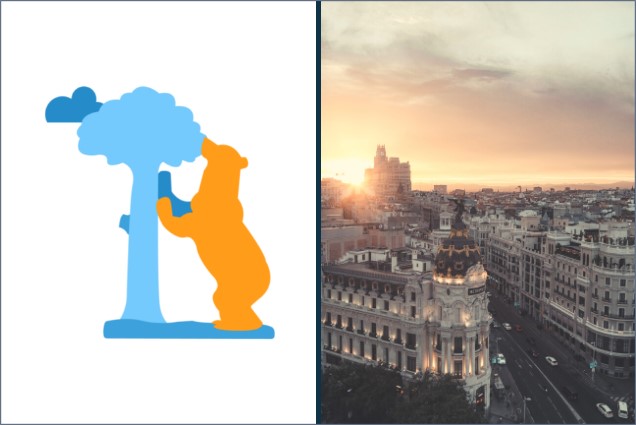In the “Job Profiles” series, various members of the InterNations team talk about their role in the company and their work. Here, Senior Local Community Engagement Specialist Christoph gives us a glimpse of what being the first local manager for some of our InterNations Communities involves.
What is your role at InterNations? And when did you join our team?
My current job title is Senior Local Community Engagement Specialist for Spain, Portugal, and Southern France. I’ve been working in this role for eight years. But my portfolio of InterNations Communities has gradually expanded.
In early 2014, InterNations started an experiment. They hired me as the first local manager for one of their communities. Madrid was an ideal candidate because it was already among the biggest and busiest worldwide.
Eventually, I became responsible for all Spanish communities. And after a while, our communities in Portugal, as well as those in Southern France, joined my portfolio too. I’m now the on-the-ground expert for 25 communities.
What responsibilities does your role as an “on-the-ground expert” involve? Do they differ from those of your colleagues in any way?
I mainly work in Madrid, where I’ve been living for the past 17 years. However, most other members of the Community Engagement Team work remotely. Another local specialist recently started in Zurich, though.
In some respects, my job is very similar to that of my remote colleagues. Monitoring the official events and activities in our communities is a key part. Unlike the large events for the whole community, activities are smaller get-togethers for sharing hobbies and interests. For instance, I make sure that our Consuls — the members hosting the activities — respect our Community Guidelines. I also support them when they have requests, feedback, or questions.
While the remote Community Engagement Specialists have additional behind-the-scenes tasks, it’s part of my job to organize the official events in Madrid, usually four per month. Our in-person events are one of the major reasons why our members upgrade to a paid Albatross Membership. And I’m really proud of the fact that there are now more Albatross Members in Spain than in similar countries.
All in all, my job is more of a feedback position with a focus on community life. I regularly organize in-person meetings with “my” InterNations Consuls to get their input and keep in touch. By now, I know most of them personally. Last but not least, I’m always running various local experiments. Whenever InterNations wants to try something new, we’ll introduce it in Spain first. There’s lots of room for flexibility and new ideas.
What do you mean by “running local experiments”? Can you provide some examples?
Our Newcomers’ Events are actually a great example. All newcomers worldwide usually have the same problem upon arriving at a large event. To them, it looks like everybody knows everybody else already, while they don’t know anyone.
So, we came up with a special event format for those who are new to InterNations. There, the Ambassadors and Consuls introduce themselves and explain what InterNations has to offer. It’s also a chance for the newcomers to network and start making friends, for example, with our popular InterNations Icebreaker Bingo. After a successful launch in Madrid, we rolled out these events worldwide.
I also think we could try differentiating between Ambassador roles. InterNations Ambassadors are the members who organize large, monthly events for the whole community in most other cities. But since I handle all organizational matters in Madrid, here our Ambassadors can focus solely on networking. They welcome members, circulate, connect people, and keep the crowd happy.
Splitting the role of all InterNations Ambassadors between networkers and event organizers might be an option. This would allow them to better showcase their personal strengths.
And what about you? It sounds to me like your own role requires you to be good at organizing, networking, and communicating.
Yes, you also need good people skills for this job. To make our newcomers feel welcome, to pick just one example. Of course, we now have the Newcomers’ Events. But they still attend other events. And they’re a bit like goslings hatching. Geese imprint on the first thing they see upon leaving the egg. For newcomers, their first event is their point of reference. If they have a great time, they’ll be back. But if they don’t …
So, if there’s someone new at an event, I usually find out when greeting them at the entrance. Then I have maybe one minute to get to know them a little and put them in touch with the right people among the guests. It can be quite challenging — you rely on your instincts a lot.
As you said earlier, you’re a German expat who has been living in Spain for 17 years. How does this kind of experience help you with your job?
Being an expat and having local expertise can be helpful in a lot of ways.
For example, most people in Spain hug and kiss a lot, and they often stand very close when talking. But some expats need a lot more personal space. If I receive a complaint about someone misbehaving at an event, knowing this may help me assess the situation. Was it perhaps just an intercultural misunderstanding that can be easily resolved?
Local know-how and local contacts are also important for organizing events. In Madrid, nightlife starts after midnight. If you schedule events at 21:00, the venue is basically yours for a few hours. This would never work in many other cities.
But if you want to book really great venues, it’s far easier for local event organizers. Fortunately, there’s an InterNations member who used to work in the city’s hospitality sector and who just loves our community. He knows how to talk to venue owners, how to negotiate deals, when to push and when to wait. I couldn’t do this as an expat, not even after all those years in Spain. I’m very grateful to him — we’ve now organized more than 350 events together.
Last but not least, being an expat helps me connect with our members. Especially first-time expats often come to me with what I jokingly call “beginner’s problems”. We’ve all been there, and I can relate.
What do you love best about your job?
Most of my personal highlights involve attending an event and seeing that the attendees are obviously enjoying themselves. They’re talking, they’re laughing, they’re hitting the dance floor. New arrivals are getting in touch with other members, and they suddenly seem much more relaxed. And then they’ll be back at other events. They’ll tell me about the activities they’ve joined, or they’ll post about them on social media. These are the moments when everything just comes together and makes sense.
It’s what were here for — to make friends. A perfect event doesn’t require a five-star dinner at a luxury hotel. InterNations is about people, about developing a sense of cultural differences and a feeling of mutual respect. It’s about connection.
InterNations has a very simple message: connecting global minds. To me, this means meeting like-minded people from across the world and having a good time together. It’s the spirit we would like to spread as a company, but it’s also our philosophy behind the scenes. How many nationalities are there on our team again? 35? 40? I think we’re really living and breathing our message.
Image credits: InterNations / iStockphoto / Pexels (Alex Azabache) / Shutterstock




